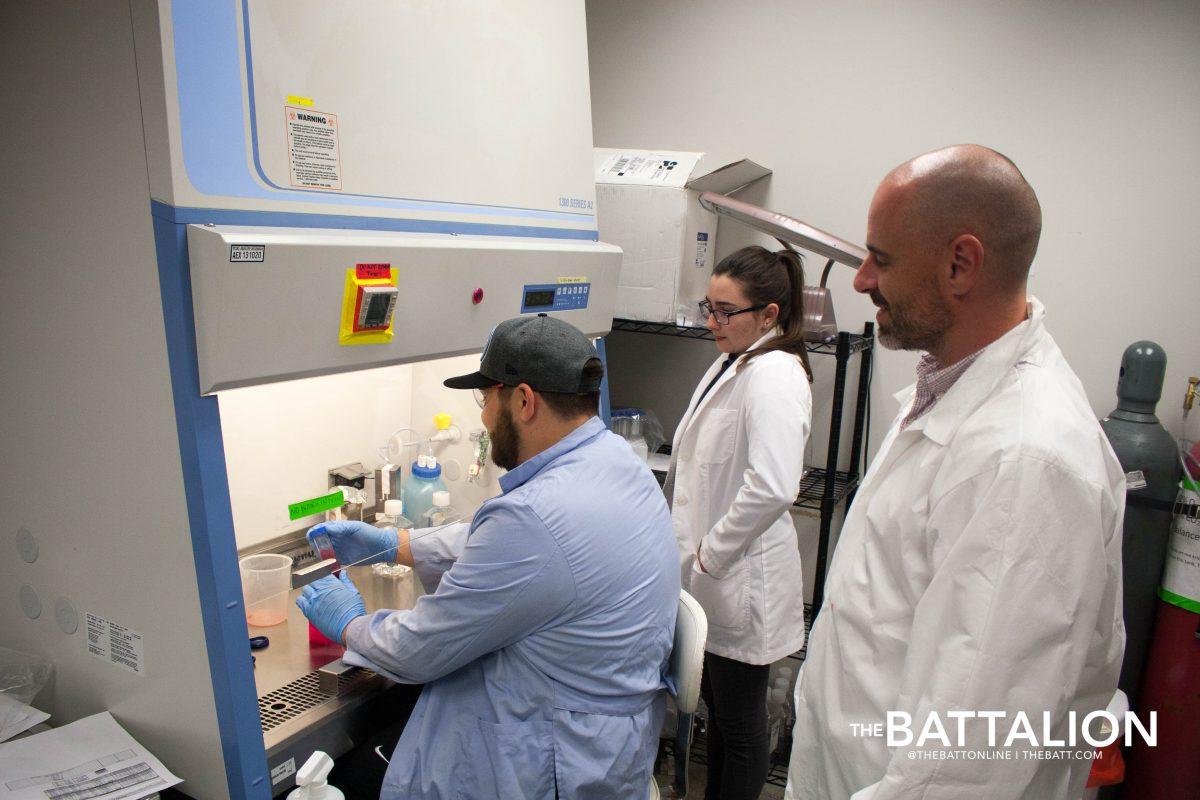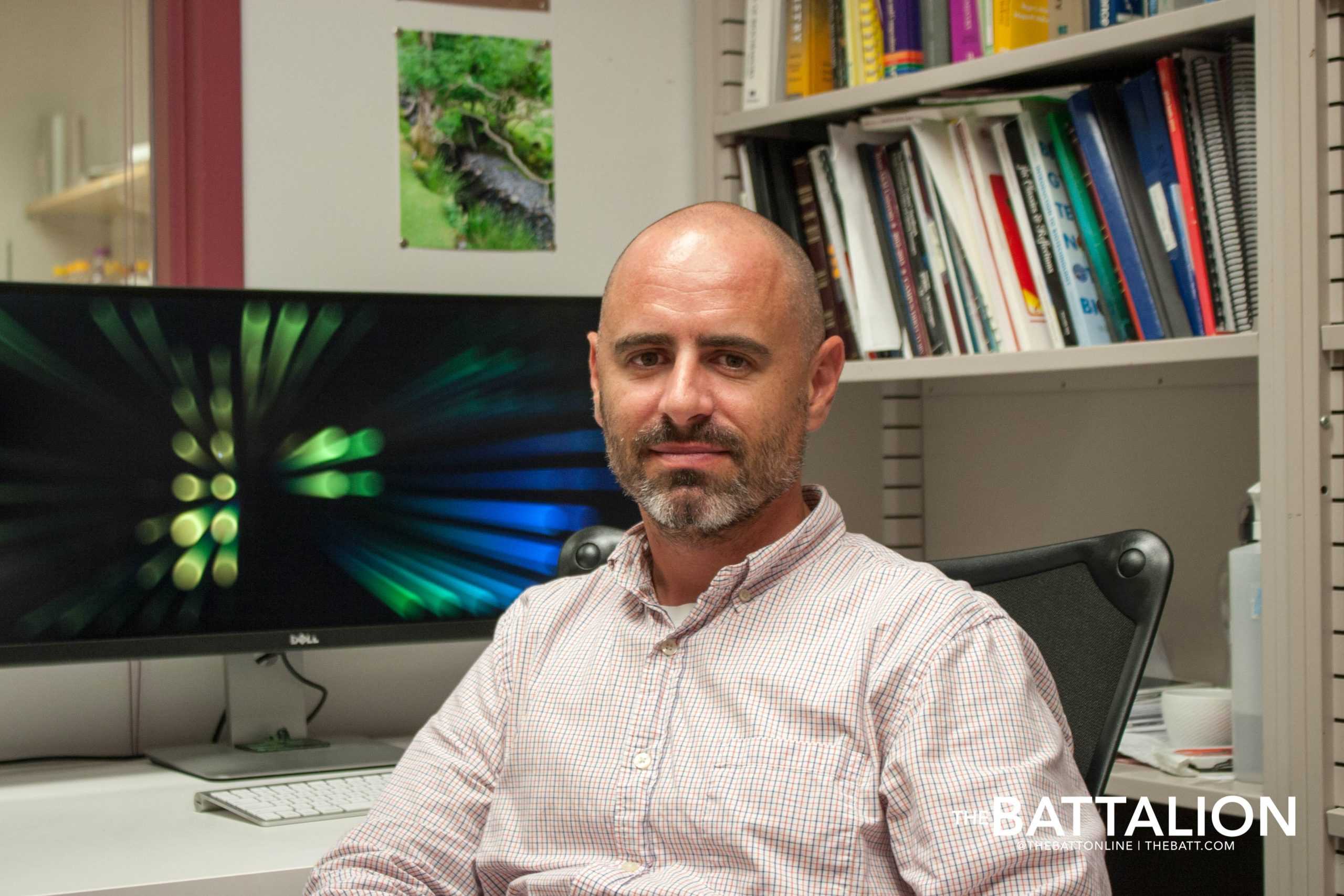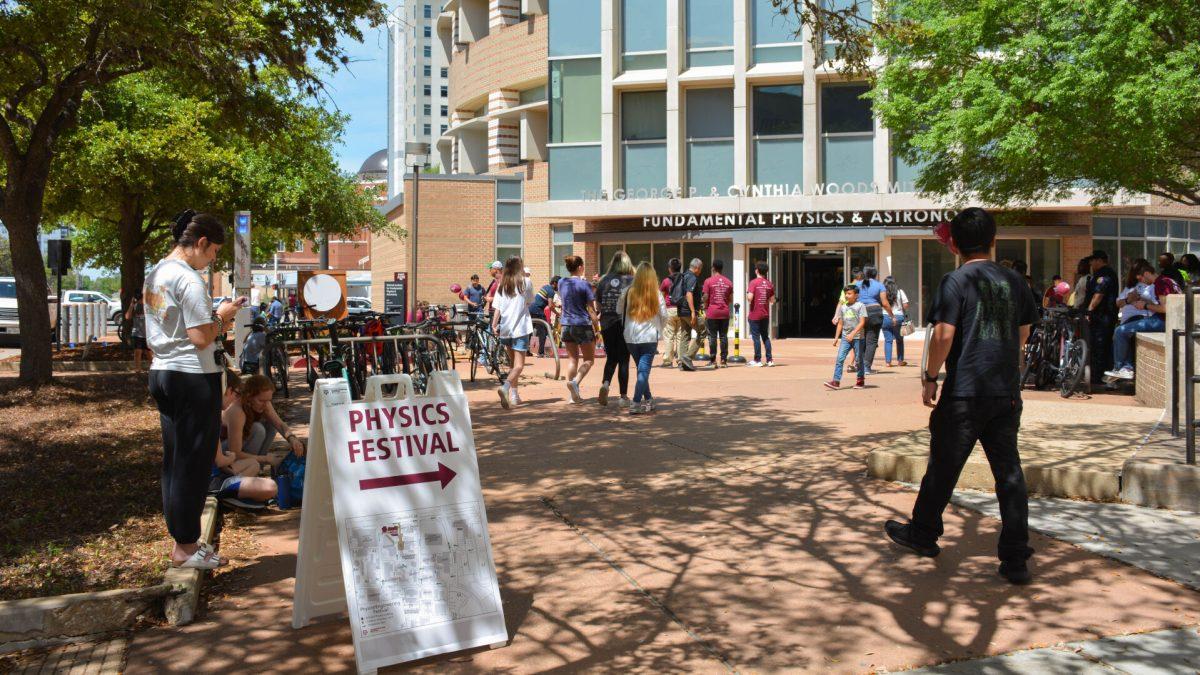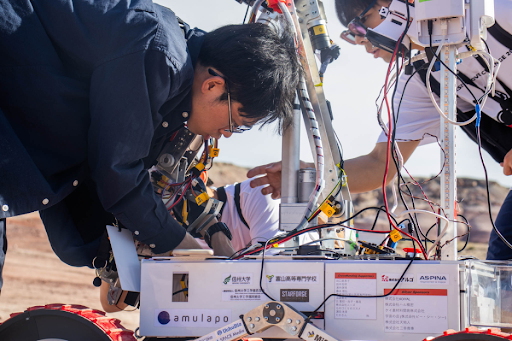Through collaboration between two Texas A&M laboratories, one graduate student’s proof-of-concept came to life, showing that nanofactories can be used to protect enzymes and cells from damages for over a week.
The study, recently published online, saw chemistry graduate student Xizhen Lian reach out to the lab of Jean-Philippe Pellois, a professor in the biochemistry and biophysics department. Lian had already been a part of chemistry professor Hongcai Zhou’s laboratory, and when he discovered the amount of cell biology in the process of creating the nanoreactor, he sought out Pellois to create a collaboration between the groups.
“Our group has discovered several high-performance enzyme immobilization materials, but none of them have been involved in cell biology or biomedical research,” Lian said. “Since the ultimate goal of enzyme immobilization materials is for manipulating enzyme functions in living cells in a long persistent manner, I decided to launch a proof-of-concept work with a collaboration with Dr. Pellois’ lab.”
Beginning with a paper published in 2016, the design of a novel mesoporous metal-organic framework material for the coupling of two enzymes to generate a tandem nanoreactor was found, Lian said. When he noticed the combination of chemistry, engineering and biology, he looked to learn more through further research.
“During the preparation of the manuscript, I found the absence of in cellulo researches of this type of materials and I came up with the idea,” Lian said. “Dr. Pellois is also very open to new collaborations. He’s always curious like a rookie graduate student. He’s very helpful in manuscript writing and revising.”
The ideas behind the research were all brought forward by Lian and only alternative ideas and assets were brought by Pellois’ lab, according to Pellois.
“The main ideas were his and that is something that should be really emphasized,” Pellois said. “The idea of trying to put a protein into materials that could help protect the cells were his.”
Pellois said that while this research is just a proof-of-concept, a change from a few hours of cell protection to a week can be very beneficial to everyone, including cost savings and help in enzyme replacement therapies.
“There are a lot of diseases that have to do with enzymes that are mutated and they don’t work anymore in your body and because you don’t have they you are susceptible to disease,” Pellois said. “Right now to protect the enzymes, a person needs frequent injections and the cost [goes] way up. The hope down the road is that these injections go from daily or weekly to monthly to help a person’s quality of life and the cost go down.”
While other applications haven’t been pursued yet, Pellois said military application could be seen as well down the road to help protect people from poisonous toxins.
“You need soldiers to be protected from toxins and nerve gas,” Pellois said. “We can potentially envision a future where you have those enzymes present in the soldier that can protect them for long periods of time in case of an exposure to something toxic.”
Pellois said while he sees collaborations quite often there is plenty to consider when it comes to making them successful. Working with two different departments sees the different groups looking at the same things from different angles and different languages.
When it came to working with Lian, Pellois said he came in very open-minded and learned a lot of cell biology, which can be difficult for someone coming from a chemistry background.
“It requires a student to be open-minded and willing to take a harder road and in the end, it can pay off in a big way because you can do things that others can’t,” Pellois said. “Xizhen was here all the time, including nights and weekends. When collaborations have people who are aligned and have the same priorities, then it is likely to be successful.”
Graduate student’s research leads to cell biology breakthrough
January 23, 2018
0
Donate to The Battalion
$1765
$5000
Contributed
Our Goal
Your donation will support the student journalists of Texas A&M University - College Station. Your contribution will allow us to purchase equipment and cover our annual website hosting costs, in addition to paying freelance staffers for their work, travel costs for coverage and more!
More to Discover











